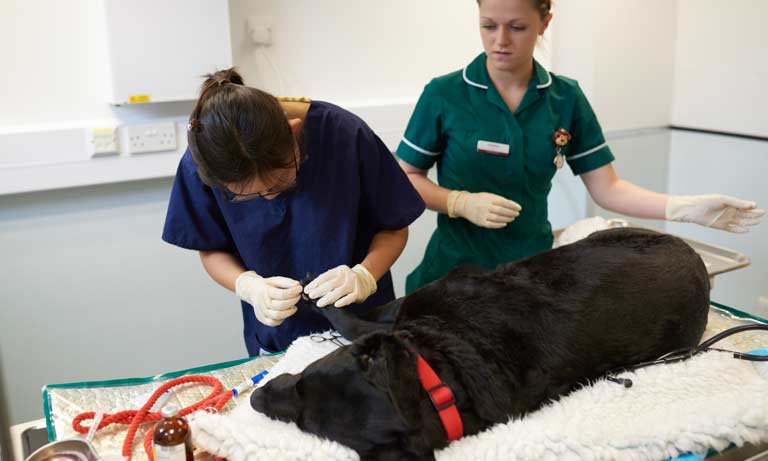Sunscreen, shade and sunset walkies: Vets issue urgent heatwave advice as temperatures set to rival 2018 record
15 Jul 2022
Public Health England has issued advice on test and trace in recognition of the potential impact on veterinary practices, following our lobbying.

When the contact tracing systems were introduced across the UK, BVA raised concerns that veterinary practices could be forced to shut down due to the nature of veterinary work that means veterinary professionals cannot physically distance. This could have a significant impact on the provision of animal health and welfare services, particularly in an emergency. BVA asked the Health Secretary and Defra to assess contact tracing system calls with veterinary professionals in the same way that those in human healthcare settings are considered.
BVA President Daniella Dos Santos raised the issues directly with Defra Minister Lord Goldsmith and the UK Chief Veterinary Officer during a virtual visit in June and they pledged to take up the matter.
In response, Public Health England has issued updated advice to BVA and the RCVS recognising the importance of veterinary services and the impact that disruption to healthcare provision and veterinary services can have in some rural communities. In summary the guidance means that veterinary professionals who have taken all precautions and who wear appropriate PPE when working together will not be considered as contacts and will not be asked to self-isolate.
Appropriate PPE includes:
In addition, in the event that self-isolation is required but would lead to a major problem with the provision of veterinary services to support animal health and welfare in an area, veterinary practices can discuss the situation with the local PHE Health Protection Team who will consider a local risk assessment.
Commenting, BVA President Daniella Dos Santos said:
“This is a huge breakthrough for veterinary practices who have been working under the fear of the contact tracing programme potentially forcing them to shut down.
“It’s the number one concern that members have been raising with me through our Covid Clinics and in other communications, and I’m delighted that we now have a positive outcome for them in England.
“We’re incredibly grateful to Lord Goldsmith and UK CVO Christine Middlemiss for their support in getting the new PHE guidance approved. We’ll continue to raise the issue in Scotland, Wales and Northern Ireland and hope that a similar approach is taken.
“The advice to veterinary professionals in England is that as long as you are taking all precautions such as practising social and physical distancing, practising good hand hygiene and wearing appropriate PPE, you will not be considered as contacts and will not have to self-isolate. If you test positive for Covid-19 make sure you explain the full circumstances to the contact trace call handler.
“It’s important to remember that the contact trace information is confidential so if a client or a contact outside your workplace identifies you as a contact, you may still need to self-isolate. Veterinary practices and professionals should continue to follow social distancing and biosecurity guidance.”
Public Health England has provided guidance to BVA and the RCVS via the Chief Veterinary Officer as follows:
The Royal College of Veterinary Surgeons (RCVS) has also provided an FAQ.
Please note that following this announcement information about the new advice was further refined and we advise readers to check the latest information in our Covid-19 information hub to indicate that the advice has evolved slightly.
Get tailored news in your inbox and online, plus access to our journals, resources and support services, join the BVA.
Join Us Today